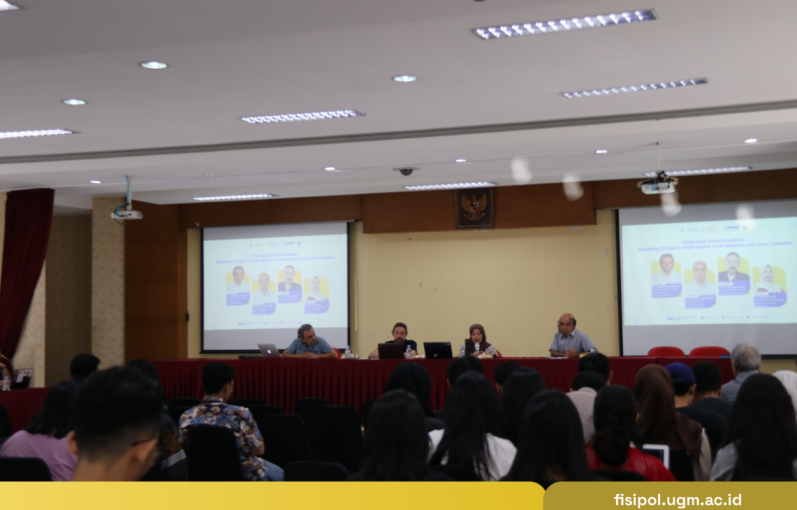
Dr. Mehmet Cevat Yildirim, as Associate Professor of Public Administration, explained that the global crisis has experienced its own set of dynamics from time to time along with technological advancements and climate change. For example, in 1970, there was a transition from the import sector to global manufacturing. It then developed further to global factory networks due to globalization. Now, the world has entered an era of robotic technology and the neoliberal economic structure. These changes have caused a number of disruptions in various fields, including employment. “This creates new problems for countries that depend on the development of urban areas. This is the case in Turkey, where the growth of industry outpaced the infrastructure planning process,” Mehmet stated. Gebze, one of the centers of the automotive and chemical industries that drive Turkey’s economy, is now faced with the lack of adequate infrastructure. Unprepared, the city infrastructure is increasingly under pressure, causing several social problems such as congestion, minimal public service, and high population density.
Similar things are happening in Indonesia, specifically in the city of Bekasi, West Java. Mehmet’s research has shown Bekasi as the centre of the world’s automotive industry that has grown at a rapid pace due to investments. However, the area of Bekasi itself is separated into two very unequal areas, namely the modern industrial district and the residential district. “The city infrastructure that we see in Bekasi is under pressure due to high amounts of migration, land purchase for investment and infrastructure gaps,” Mehmet explained. According to him, the economic growth experienced is not accompanied by proper access to public services and infrastructures.
Other then the issue of urban planning, Dr. Uygar Dursun Yildirim, as an expert in Public Administration, explained the major challenges of establishing food security amidst climate change and exponential population growth. He highlighted the emergence of successive crises that has caused the weakening of global food security, such as the Covid-19 Pandemic and geopolitical conflicts happening all around the world. In consequence, the global food production and distribution chain was cut off in some parts, specifically agricultural land as the main producer of food and the price increase of low-supply material.
A 2024 survey from the World Bank and the Food and Agriculture Organization (FAO) stated that Indonesia is among the countries where only fifty percent of the population is able to reach balanced food nutrition. This means that the people still have difficulty accessing food supplies due to unstable market prices and unbalanced food supply in several regions. “There is a lot to be addressed in the global food security system, including how to make a system not only profit-oriented but also inclusive and diverse,” Uygar argued.
The Indonesian government’s agenda which highlights food security and community empowerment needs support from many sectors. The complexity of food security problems lies not only in the global system of production and distribution, but the government also has to adapt with the advancement of technology in order to face climate change. The same goes for urban planning, where the government needs to plan adequate urban planning so that cities can accommodate industrial activities better. The government needs to take into account the views of experts in order to implement these agendas with success.
The discussion is expected to connect the important dots in order to achieve food security and inclusivity amidst industrial competition. Furthermore, this event is also intended to fulfill the agenda of UN’s Sustainable Development Goals 2 Zero Hunger and Sustainable Development Goals 10 Reduced Inequalities
